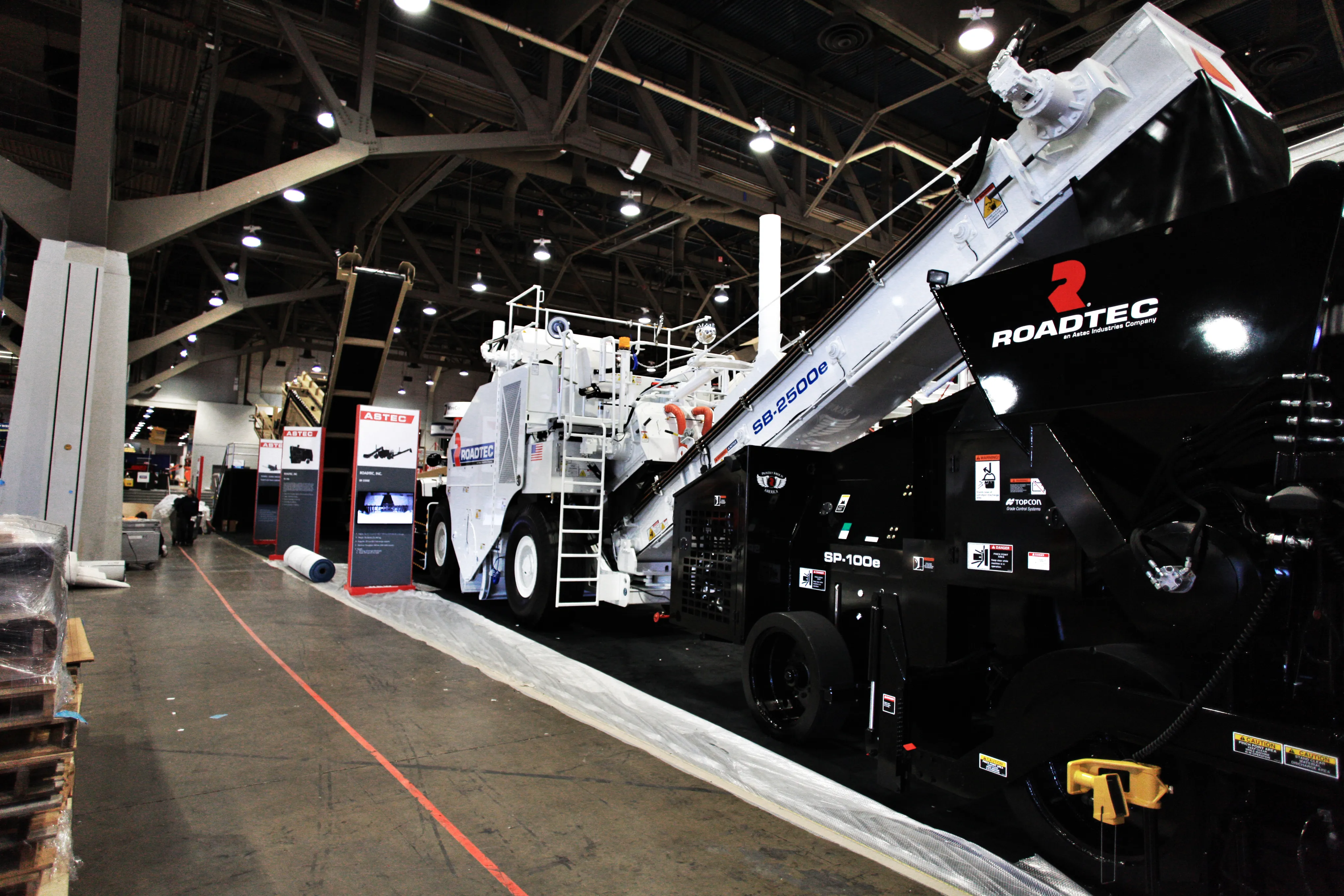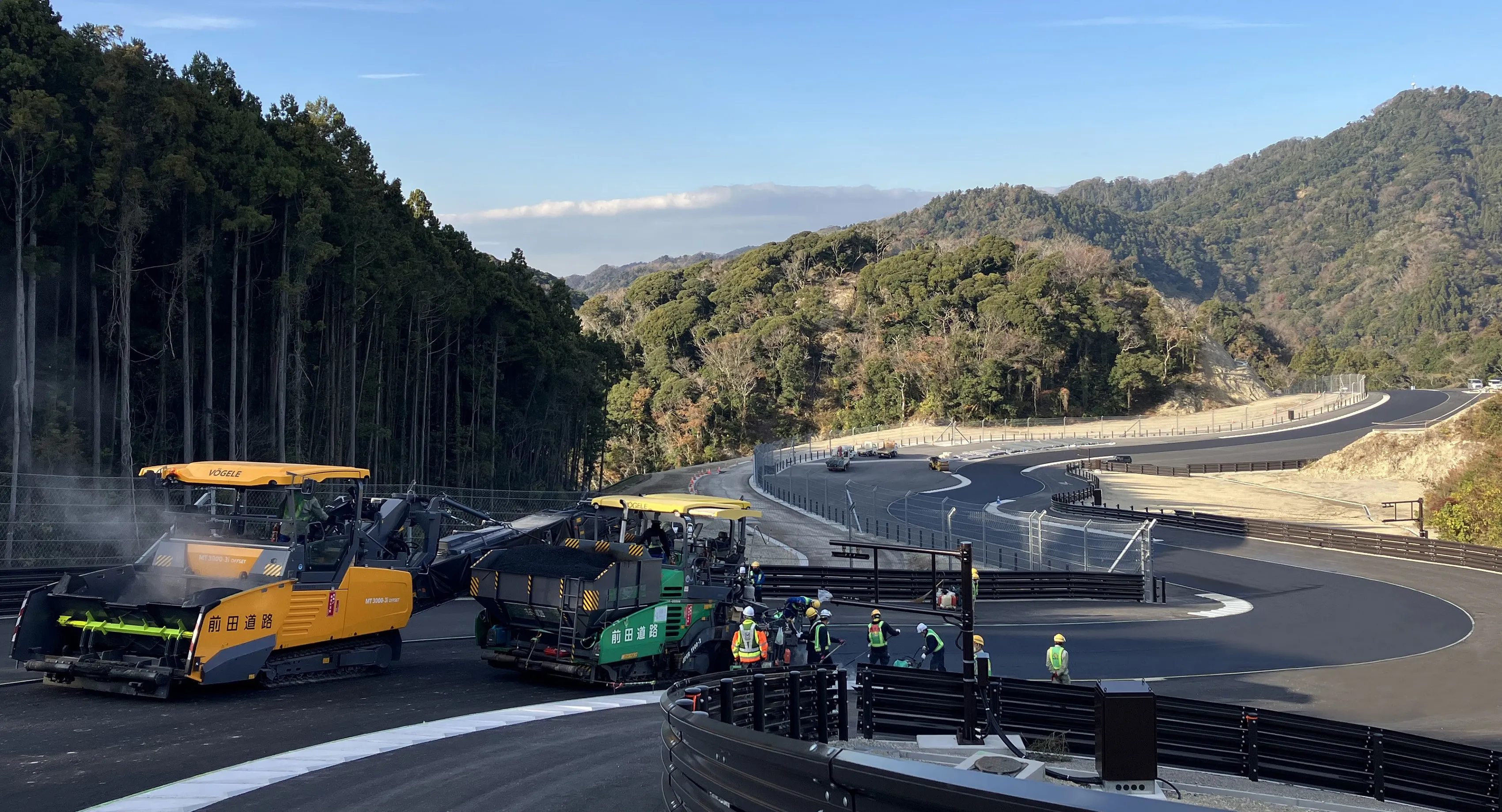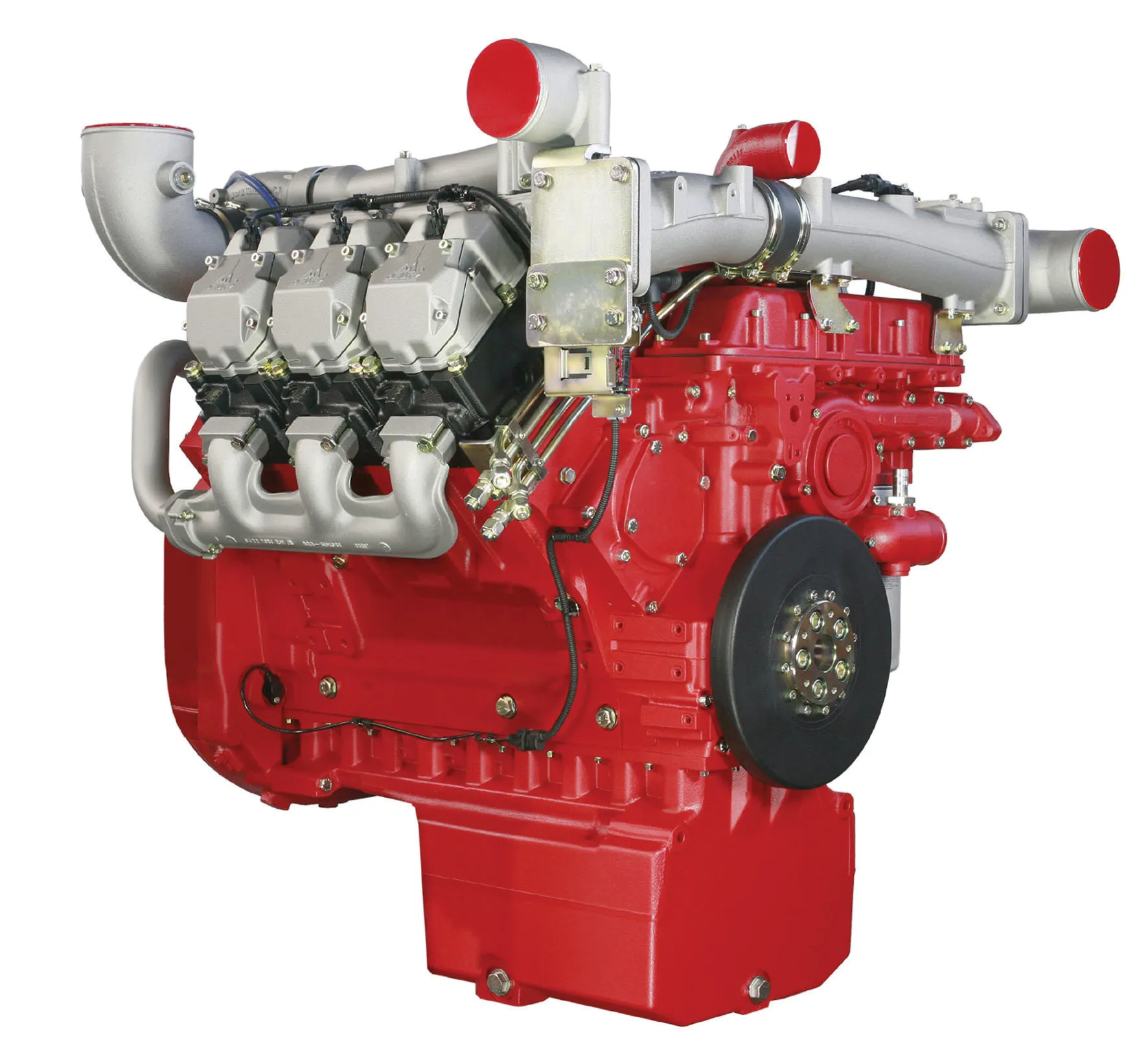Roadtec is showcasing the latest version of its SB2500e Shuttle Buggy material transfer vehicle (MTV) at Conexpo fitted with a new Tier 4i Cummins engine, rather than a Cat unit.
March 4, 2014
Read time: 2 mins

Roadtec made the engine switch to Cummins due to the manufacturer’s track record and confidence in its availability, said Scott Lee, advertising co-ordinator with Roadtec. “Cummins has worked with us in the past. They addressed several problems we were having with the T4 system.”
Roadtec, which invented the concept of material transfer vehicles (MTV) more than 20 years ago, has made a number of improvements to the machine, all designed to make it more efficient and more durable.
“It has a bigger throughput,” said Lee. “The slats are bigger and the flight and auger system has been redesigned to better handle material and give a longer life.”
Roadtec has also beefed up the wear plates inside the machine, tripling their strength by upgrading the steel used. This will also increase the machine’s life, said Lee.
Changes have also been made to improve maintenance. The opening to the unloading conveyor opens all the way across to make cleaning easier. And the transfer conveyor has fully opening Bombay doors beneath, also to aid cleaning.
The Shuttle Buggy has a 22.7tonne storage capacity, with a truck unloading capacity of 907tonnes/hour and a paver loading capacity of 544tonnes/hour.www.roadtec.com









